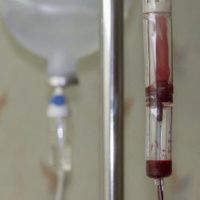
Whenever you are hospitalized for an injury or illness, you probably do not give much thought to the ancillary treatment and secondary procedures health care providers employ to support your needs. As such, data from the US Department of Health and Human Services (HHS) might surprise you as it pertains to one common procedure. Every year, there are almost 18 million blood transfusions performed in the US. More than 5 percent of patients in hospitals receive a blood transfusion, most often as part of treatment for catastrophic injuries and cancer care.
The vast majority of blood transfusions are successful and serve their intended purpose. However, negligence by hospitals can lead to serious health concerns when donated blood is not compatible with the recipient’s blood. ABO incompatibility reaction is a serious, potentially life-threatening condition that only occurs because of human error. While you should count on a Florida hospital negligence attorney to explain the details, some information about blood transfusions and medical malpractice laws is helpful.
How Mistakes Put Patients at Risk
Hospitals have procedures in place to avoid mixing up donor and recipient blood for a transfusion, and the most common involves two steps:
- Determining the recipient’s blood type, (i.e., A, B, AB, or O), and whether he or she is positive or negative for the RhD protein.
- Cross-matching the recipient’s red blood cells with the donor’s to ensure the recipient does not have antibodies that will target the new blood.
In the hospital setting, errors with either of these steps can lead to serious patient harm. Usually, the mistakes involve mislabeled blood, issues with patient charts, incomplete medical records, and a failure to double-check the blood before a transfusion procedure. The onset of ABO incompatibility symptoms can occur within just a few minutes as the patient’s body reacts to the foreign material. Signs of blood transfusion error include:
- Fever and chills
- Difficulty breathing
- Nausea and vomiting
- Muscle pain, particularly in the chest and back
- Abdominal discomfort
Types of Damages in Hospital Negligence Claims
Under Florida law, hospitals are considered health care providers. If you can prove that the facility deviated from the standard of care regard to a blood transfusion, you may be able to recover compensation for your losses. The bar for measuring the standard of care is how a reasonably careful hospital would approach the procedure, including the implementation of policies to prevent errors.
A plaintiff who proves at a trail that a hospital was negligent about its transfusion procedures, for instance, may be entitled to recover the following damages:
- Economic damages, such as medical costs to treat your injuries and lost wages
- Noneconomic damages to cover pain and suffering, emotional distress, and other personal, subjective losses
Consult with Our Florida Hospital Negligence Lawyers About Options
For more information on your legal remedies for injuries related to blood transfusion reaction, please contact Freidin Brown, P.A. We can schedule a no-cost case review at our offices in Miami or Fort Myers, FL. Once we evaluate your circumstances, we can discuss your legal options.
Resource:
hhs.gov/sites/default/files/hhs-adequacy-national-blood-supply-report-congress-2020.pdf




